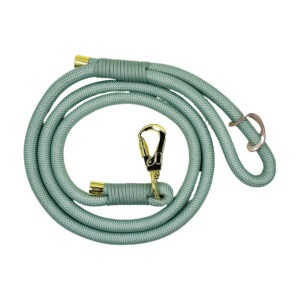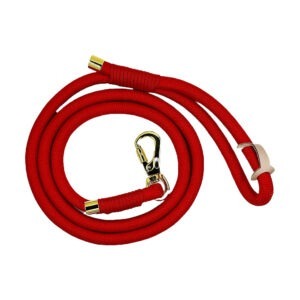Cane Corsos are powerful and majestic dogs known for their protective nature and loyalty. As a responsible pet owner, it is crucial to have a comprehensive understanding of the health issues that are common in this breed. This guide will provide you with valuable insights into the health problems that Cane Corsos may encounter, the causes behind these issues, preventive measures, treatment options, and the impact they can have on the dog’s life expectancy and quality of life.
Common Health Issues in Cane Corsos
Cane Corsos, like any other breed, are susceptible to certain health issues. By being aware of these problems, you can take proactive measures to prevent or manage them effectively. Here are some of the most common health issues found in Cane Corsos:
Hip Dysplasia
Hip dysplasia is a genetic condition where the hip joint doesn’t develop correctly. It can lead to pain, lameness, and arthritis. Regular exercise, a balanced diet, and maintaining a healthy weight can help reduce the risk of hip dysplasia.
Some of our latest products...
Idiopathic Epilepsy
Idiopathic epilepsy is a neurological disorder characterized by recurrent seizures without a known cause. While it cannot be cured, medication can often help control and manage the seizures effectively, allowing the dog to lead a normal life.
Demodex Mange
Demodex mange, caused by a mite called Demodex canis, leads to hair loss, skin irritation, and inflammation. Prompt diagnosis and treatment, usually with medication, can help eliminate the mites and alleviate the symptoms.
Eyelid Abnormalities
Cane Corsos are prone to eyelid abnormalities such as entropion (inward rolling of the eyelid) or ectropion (outward sagging of the eyelid). Surgical correction may be necessary to prevent discomfort and protect the dog’s eyesight.
Gastric Torsion (Bloat)
Gastric torsion, commonly known as bloat, is a life-threatening condition where the stomach fills with gas and twists. Immediate veterinary intervention is essential to relieve the torsion and prevent further complications.
Other Minor Health Issues
Cane Corsos may also experience other minor health issues such as allergies, skin infections, ear infections, and dental problems. Regular grooming, proper hygiene, and routine vet check-ups can help prevent and manage these issues effectively.
Understanding the Causes
Several factors contribute to the development of health issues in Cane Corsos. Understanding these causes can aid in prevention and early intervention. The following factors play a significant role:
Genetic Factors
Genetic predisposition is a crucial factor in the occurrence of certain health issues. Responsible breeders conduct genetic testing to minimize the risk of passing on genetic disorders to future generations. When getting a Cane Corso, it is essential to choose a reputable breeder who prioritizes the health and genetic well-being of their dogs.
Environmental Factors
Environmental factors such as temperature extremes, humidity, and exposure to certain chemicals or toxins can impact a Cane Corso’s health. Providing a safe and clean living environment, avoiding excessive heat or cold, and minimizing exposure to harmful substances can contribute to their overall well-being.
Lifestyle Factors
The lifestyle and care provided to a Cane Corso also influence their health. Regular exercise, mental stimulation, a balanced diet, and proper hygiene practices are essential for maintaining optimal health in these dogs. A sedentary lifestyle, improper nutrition, or neglecting grooming needs can increase the risk of various health issues.
Symptoms and Diagnosis
Recognizing the symptoms of common health issues in Cane Corsos is crucial for early intervention and effective treatment. Some signs that may indicate a health problem include:
- Limping or difficulty in movement
- Seizures or uncontrolled shaking
- Itching, redness, or hair loss
- Excessive tearing or discharge from the eyes
- Distended abdomen or unproductive vomiting
- Persistent coughing or difficulty breathing
If you notice any of these symptoms or any other abnormal behavior, it is essential to consult a veterinarian promptly. Regular vet check-ups are recommended to detect any potential health issues early on. Diagnostic tests such as blood work, X-rays, ultrasounds, or genetic testing may be necessary to confirm a diagnosis and determine the best course of treatment.
Treatment Options
Treating health issues in Cane Corsos typically involves a combination of medical, surgical, and alternative options. The appropriate treatment will depend on the specific condition and its severity. Here are some common treatment options:
Traditional Medical Treatments
Traditional medical treatments may include medications, such as pain relievers, anti-inflammatories, or anticonvulsants, to manage symptoms and improve the dog’s quality of life. Antibiotics or antifungal medications may be prescribed to treat infections.
Surgical Options
Surgical interventions may be required in cases such as eyelid abnormalities, bloat, or orthopedic issues. Surgery aims to correct the problem and alleviate discomfort, allowing the dog to lead a healthier and more comfortable life.
Alternative Treatments and Therapies
Alternative treatments and therapies, such as acupuncture, physical therapy, or herbal remedies, can be used as complementary approaches to support the dog’s overall well-being. It is crucial to consult with a qualified veterinarian or holistic practitioner before considering alternative treatments.
Preventive Measures
Prevention plays a vital role in maintaining the health and well-being of Cane Corsos. By implementing the following preventive measures, you can minimize the risk of common health issues:
Importance of Regular Exercise and a Balanced Diet
Providing regular exercise appropriate for the dog’s age and energy level helps maintain muscle strength, joint health, and overall fitness. A balanced diet that meets the nutritional needs of the Cane Corso, with guidance from a veterinarian, ensures optimal health.
Regular Vet Check-ups and Vaccinations
Routine veterinary check-ups are essential for early detection of any health issues. Regular vaccinations protect against infectious diseases, and preventive medications can help control parasites such as fleas, ticks, and heartworms.
Importance of Maintaining a Healthy Weight
Maintaining a healthy weight is crucial for Cane Corsos, as obesity can contribute to various health problems, including joint issues and heart disease. Proper portion control, regular exercise, and avoiding excessive treats can help prevent obesity.
Understanding the Cost of Care
It is essential to consider the financial aspect of caring for a Cane Corso, as health issues can incur expenses. Factors such as routine vet visits, vaccinations, preventive medications, and unexpected medical treatments should be taken into account. Pet insurance can provide financial protection and help offset the costs associated with veterinary care.
Genetic Testing for Cane Corsos
Genetic testing plays a significant role in identifying potential health issues in Cane Corsos. Breeders and responsible pet owners can utilize genetic tests to assess the risk of inherited disorders and make informed decisions regarding breeding and preventive measures. Early detection through genetic testing can help manage or minimize the impact of certain health conditions.
Impact on Life Expectancy and Quality of Life
Health issues can significantly impact the life expectancy and quality of life for Cane Corsos. It is important to understand that some conditions may shorten a dog’s lifespan, while others may require lifelong management. However, with proper care, including regular vet visits, appropriate treatment, and a supportive environment, it is possible to enhance the quality of life for a Cane Corso with health issues.
Conclusion
In conclusion, understanding and managing health issues in Cane Corsos is crucial for responsible pet ownership. By familiarizing yourself with common health problems, their causes, preventive measures, treatment options, and the impact they can have on a dog’s life, you can provide the best possible care for your Cane Corso. Remember to consult with a veterinarian for personalized guidance and to ensure the well-being of your beloved companion.
Frequently Asked Questions (FAQs)
Are Cane Corsos prone to obesity?
While Cane Corsos can be prone to obesity, it can be prevented by providing regular exercise, portion control, and a balanced diet.
Can all health issues in Cane Corsos be prevented?
While not all health issues can be prevented, many can be minimized or managed effectively through preventive measures and early intervention.
Do Cane Corsos require special grooming?
Yes, regular grooming is necessary to maintain a healthy coat and prevent skin issues. This includes brushing, nail trimming, and cleaning the ears.
What is the average lifespan of a Cane Corso?
The average lifespan of a Cane Corso is typically around 9 to 12 years, but it can vary depending on various factors, including their overall health and genetics.
Is it necessary to spay or neuter a Cane Corso?
Spaying or neutering a Cane Corso is a personal decision that should be discussed with a veterinarian. It can have health benefits and help prevent certain reproductive-related issues.





